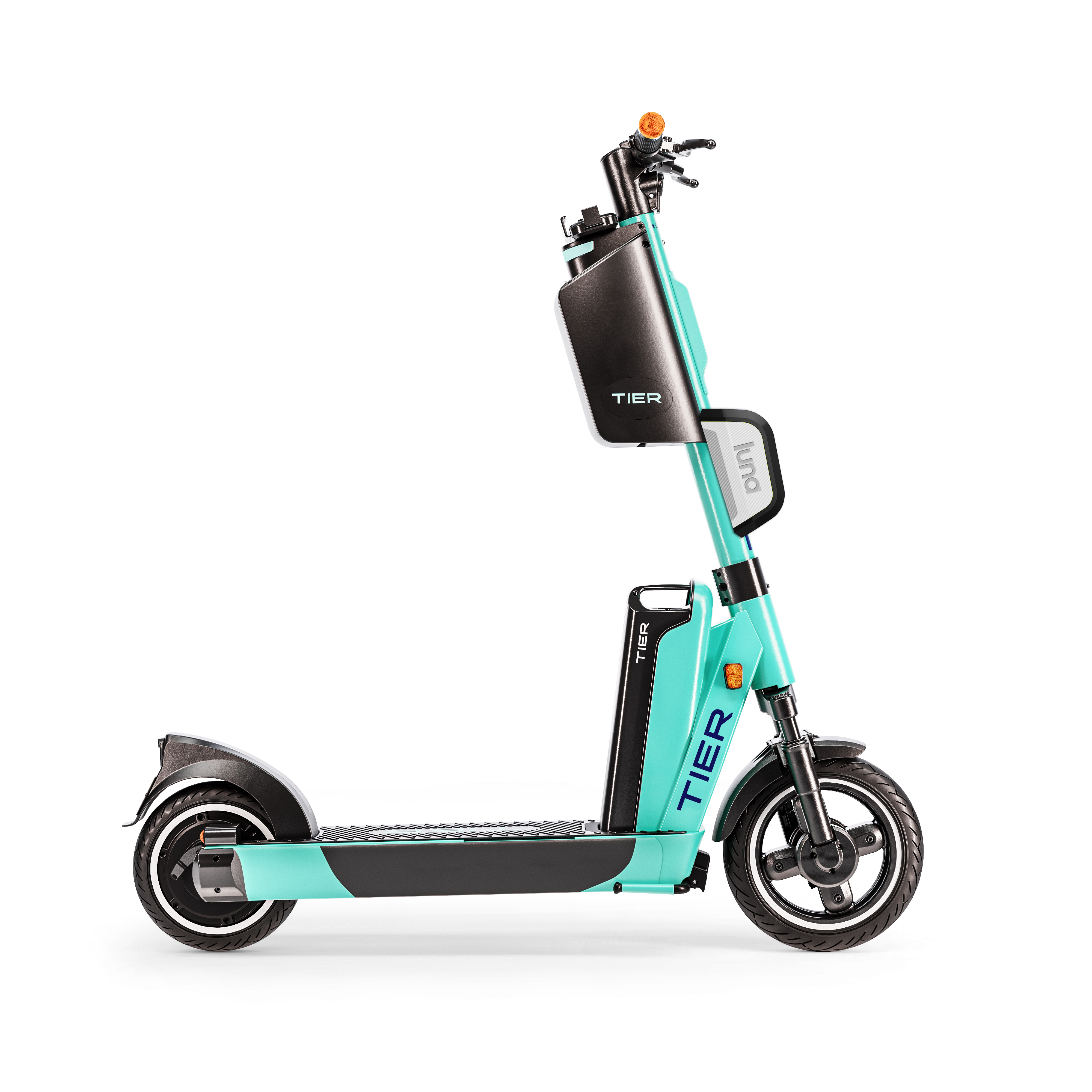Thessaloniki gets ready for its metro launch in November
The underground rapid transit lines have been under construction for almost two decades due to various project delays
 TheMayor.EU logo
TheMayor.EU logo The strategic partnership announcement follows up a pioneering AI-based research pilot across Dublin City University campuses
Europe's leading e-scooter operator TIER and Irish micromobility tech platform Luna have entered into a strategic partnership to explore the piloting and deployment of computer vision and smart city technology on shared e-scooter fleets, across Europe and the Middle East.
Yesterday's announcement came during an Enterprise Ireland trade mission to Germany led by Tánaiste (Irish Deputy Prime Minister) and Minister for Enterprise, Trade and Employment, Leo Varadkar who met in Berlin with representatives from Luna and Tier. The topics discussed included the bilateral cooperation within the e-mobility and automotive industry, and the future of e-scooter sharing in Ireland once the respective legislation is passed.
The strategic partnership builds on a Dublin pilot project across DCU's five campuses, which is partnered by TIER, Luna, Smart DCU and Insight SFI Research Centre for Data Analytics. TIER and Luna are now eyeing possibilities to undertake similar projects in Paris, Spain and the Middle East.
For example, high-fidelity and high-frequency imagery captured by a portion of TIER's fleet of 5,000 scooters stationed in Paris can assist the Mayor's Smart City ambitions. In the Middle East, bespoke computer vision solutions can tackle local issues around safety, infrastructure optimisation, and municipal governance requirements.
TIER and Luna also pledge further collaboration with various digital mapping platforms to improve the reliability of street data. Existing mapping platforms scan cities once or twice a year, while computer vision-enabled scooters can capture and provide additional street level data on a daily basis.
Finally, TIER and Luna are embarking on a technical integration project to examine how Luna computer vision hardware can be embedded into TIER vehicles at the point of manufacture. This will allow Tier to develop a next-generation e-scooter with deeply integrated Luna computer vision technology, similar to the use of Advanced Driver Assistance Systems (ADAS) in the car industry.
To meet the increasing workload on future pilot projects, Luna will create additional 15 full time jobs to the current 5, covering computer vision/AI, hardware, IoT and project management roles in Ireland.

Tier's e-scooter of the future. Source: Beachhut PR
Speaking at the announcement of this strategic partnership, Tánaiste Leo Varadkar said: "Ireland is introducing a new law to allow for the legal usage of scooters on our roads in our towns and cities, as they become an increasingly popular option for commuters. These kinds of innovative partnerships can provide Ireland with a 'second mover advantage', helping us avoid some of the safety and other teething issues of earlier e-scooter schemes elsewhere."
Matthias Laug, CTO and Co-Founder of TIER, said: "We see computer vision as a valuable tool in our mission to change mobility for good and to lead the way towards seamless, sustainable and safe micro-mobility. Alongside our world-leading parking capabilities with Fantasmo, this powerful collaboration with Europe's leading computer vision and edge AI start-up in the scooter space, allows us to explore the full potential of this exciting technology on our fleet. Luna thinks about cities in the same way as we do, and we look forward to jointly developing new solutions that address some of the key smart city challenges, from pavement riding to infrastructure monitoring and from litter alerts to road condition reports."

The underground rapid transit lines have been under construction for almost two decades due to various project delays

Now you can get your wine in Talence by paying directly in Bitcoin

That’s because the state has to spend money on updating the railway infrastructure rather than subsidizing the cost of the popular pass

Rethinking renewable energy sources for the urban landscape

The examples, compiled by Beyond Fossil Fuels, can inform and inspire communities and entrepreneurs that still feel trepidation at the prospect of energy transition

Now you can get your wine in Talence by paying directly in Bitcoin

The 10th European Conference on Sustainable Cities and Towns (ESCT) sets the stage for stronger cooperation between the EU, national and local level to fast track Europe's transition to climate neutrality.

At least, that’s the promise made by the mayor of Paris, Anne Hidalgo

The underground rapid transit lines have been under construction for almost two decades due to various project delays

At least, that’s the promise made by the mayor of Paris, Anne Hidalgo

Hostal de Pinós is located in the geographical centre of the autonomous region

Despite its church-y name, the district has long been known as the hangout spot for the artsy crowds

Urban dwellers across the EU are having a say in making their surroundings friendlier to people and the environment.

Forests in the EU can help green the European construction industry and bolster a continent-wide push for architectural improvements.

Apply by 10 November and do your part for the transformation of European public spaces

An interview with the Mayor of a Polish city that seeks to reinvent itself

An interview with the newly elected ICLEI President and Mayor of Malmö

A conversation with the Mayor of Lisbon about the spirit and dimensions of innovation present in the Portuguese capital














